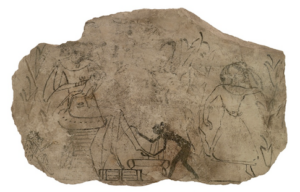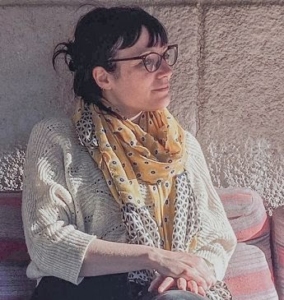
23
SepWashington D.C.: Postpartum Rituals in Ancient Egypt
Registration is Required
Presented by: Dr. Marie-Lys Arnette is assistant professor at the Johns Hopkins University
- 12:00 PM ETWashington, D.C.
- Zoom
- + Add to Calendar
Lecture Information
 In many cultures, a woman who has just given birth is perceived as impure, notably because of the blood she has lost. This impurity explains why the woman is kept on the fringe of society until she is purified through particular rituals and thus able to reintegrate into the community under her new status of mother.
In many cultures, a woman who has just given birth is perceived as impure, notably because of the blood she has lost. This impurity explains why the woman is kept on the fringe of society until she is purified through particular rituals and thus able to reintegrate into the community under her new status of mother.
In this talk, the speaker will try to define the conditions of the postpartum interval in ancient Egypt, and will describe the various rituals that put an end to it.
The documentation at our disposal will be divided, for the most part, into two groups: ostraca from Deir el-Medina, which bear witness to the practices of the women of the village during the New Kingdom; and images and texts from Greco-Roman temples and mammisis (small temples associated with the birth of a god), which concern the divine mothers.
Speaker Bio
 Marie-Lys Arnette is assistant professor at the Johns Hopkins University, where she holds the Alexander Badawy Chair in Egyptian Art and Archaeology.
Marie-Lys Arnette is assistant professor at the Johns Hopkins University, where she holds the Alexander Badawy Chair in Egyptian Art and Archaeology.
Dr. Arnette studied at the École du Louvre (History of Art and Museology) and La Sorbonne University (Egyptology). After completing her Ph.D. thesis, she became director of publications, then scientific member, of the Institut français d’archéologie orientale (IFAO, Cairo). She has taught classes on the history of Egyptian art, archaeology, and Middle Egyptian language at the École du Louvre (France), the University Lumière – Lyon 2 (France), and the University of Fribourg (Switzerland).
Dr. Arnette is a member of the French Mission for the Excavation of Tanis (EPHE/IFAO) and the Mission for the Study and Restoration of Deir el-Medina (IFAO). She collaborates with the Locus Ludi project (ERC 741520), funded by the European Research Council, and is also a scientific collaborator at the University of Fribourg. In addition, she serves as a member of the editorial board of the Locus Ludi collection (Darmstadt, Germany) and the Jeu/Play/Spiel collection (Liège, Belgium).